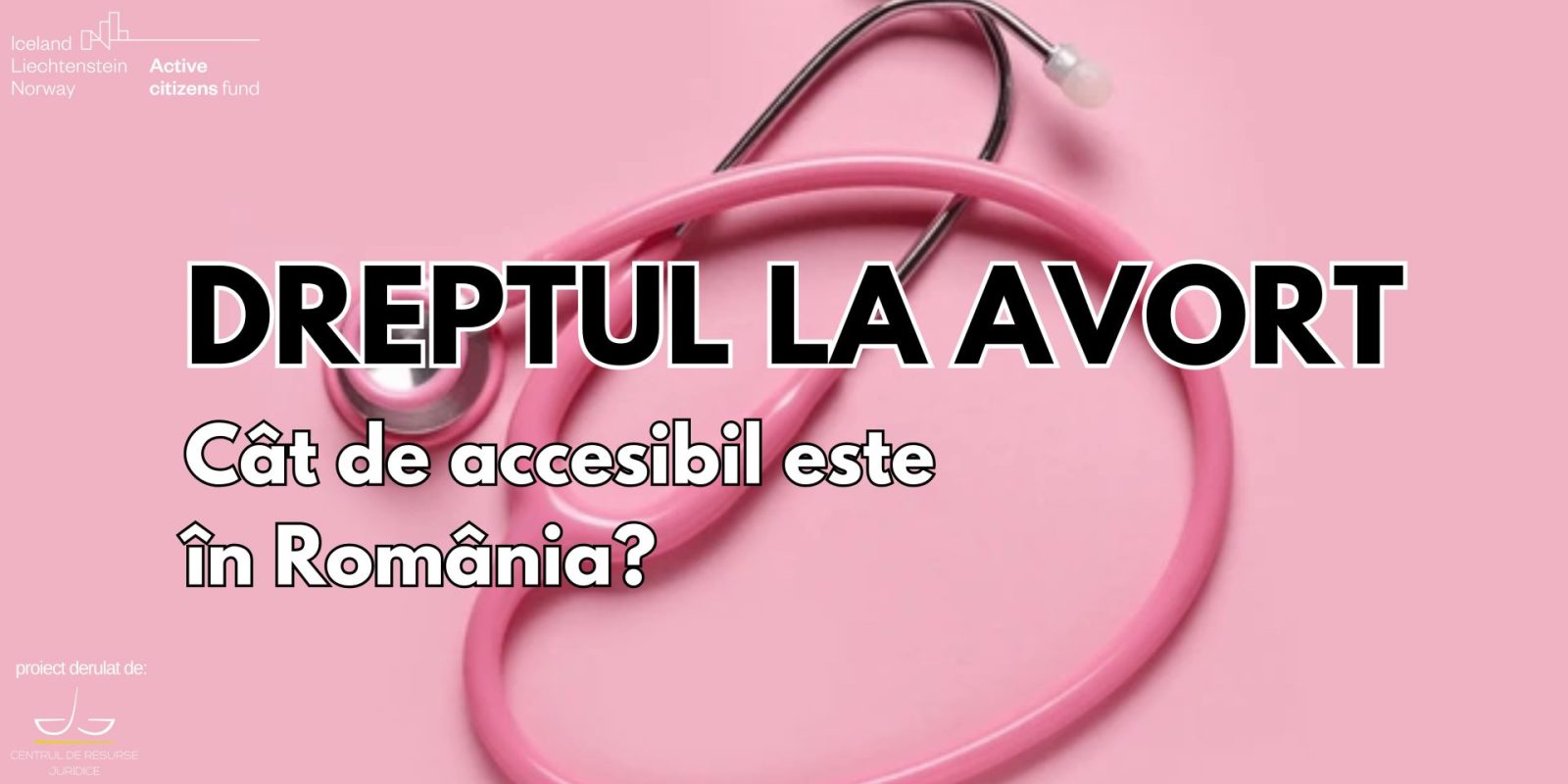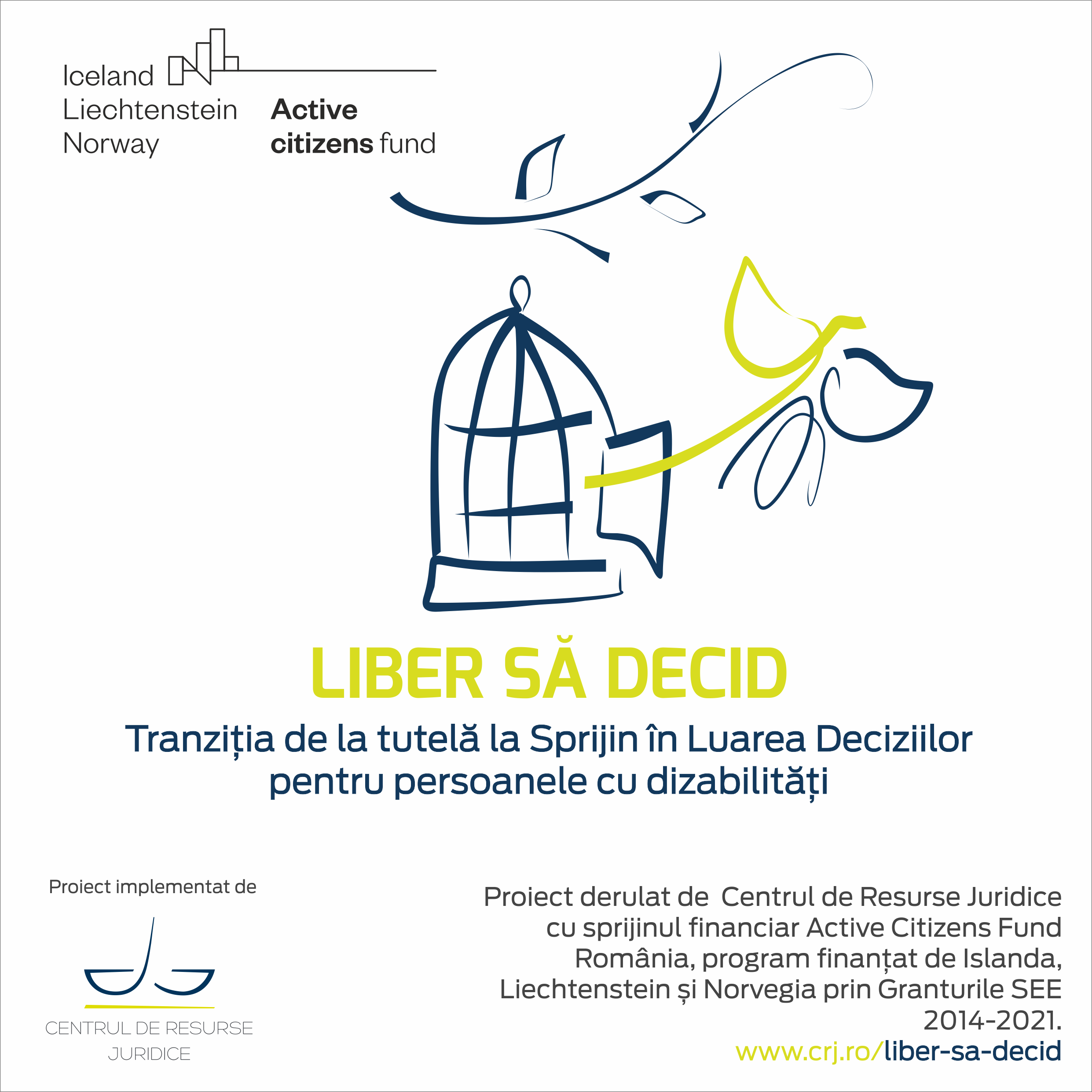“Once, to avoid an unscheduled pregnancy, there’s was no other way, I threw myself into a pool of cold water. The shock did the trick, but I could have had a heart attack, it didn’t matter, the problem had to be dealt with.”[1]
- Delia Budeanu (National Romanian Television’s news anchor
during the communist period)
- A short history of the right to abortion in Romania
The difficulties of accessing abortion are not new to Romanians. In fact, abortion or termination of pregnancy has almost always been present, in one form or another, in Romania’s criminal legislation, from the 1652 Law Enforcement[2] to the current Criminal Code that came into force in 2014.[3] Abortion on demand was introduced in 1957 by Decree No 469 of 30th September 1957, the only illegal abortion being the one performed by people without medical training or outside specialized medical institutions.[4] But this permissive legislation did not last long.
The darkest period in the memory of our mothers and grandmothers is the one caused by Decree No 770 of the 1st of October 1966.[5] According to it, pregnancy termination was illegal, except in the following cases:
“(a) the pregnancy places the woman’s life in a state of danger that cannot be removed by any other means;
b) one of the parents suffers from a serious disease which is hereditarily transmitted or which causes serious congenital malformations;
c) the pregnant woman has serious physical, mental or sensory disabilities;
d) the woman is over 45 years of age;
e) the woman has given birth to four children and is caring for them;
f) pregnancy is the result of rape or incest.” [6]
The reasons given by Nicolae Ceausescu for this interference in the private life was: “Of course, it is their personal life, but society has always been and must be concerned with people’s personal lives.”[7]
This law led to an increase in the birth rate only in the first two years, followed by a gradual decline.[8] By banning abortion on demand and in the absence of contraceptive methods and sex education, women resorted to illegal abortions with improvised means that put their lives at risk.[9]
By 1985, the maternal mortality rate had doubled, with 86% of deaths due to clandestine abortions.[10] This average was 10 times higher than the European average.[11] By 1989, a dismal figure of almost 10,000 women had died from illegal abortions. In reality, estimates show that the figure is probably double than that, seeing as many of the deaths were reported as having other causes.[12]
After the revolution, on the 27th of December 1989, Decree-Law 1/1989 repealed Decree 770/1966 and the corresponding provisions of the Criminal Code.[13] An extremely high number of abortions were recorded in 1990 and 1991, and methods of contraception were still inaccessible or unknown.[14] Abortion was criminalised again by Law 140/1996, with the possibility of abortion on demand up to the 14th week.[15] However, during the legislative vacuum, there were no penalties for those who induced empirical abortions with serious consequences for the health of the woman or the foetus.[16]
- Regulating abortion today
Currently, abortion on demand is regulated by Article 201 of the Criminal Code.[17] Abortion on demand can be carried out up to the 14th week of pregnancy, and a termination of pregnancy beyond this period is punishable by imprisonment of 6 months to 3 years or a fine and accessory penalties such as disqualification from holding office or curtailment of the right to exercise a profession or calling.[18] However, the pregnant woman cannot be the author of this crime, she cannot be punished, because the legislator has established a special ground for non-punishment if she causes her own abortion (see Art. 201 (7)).[19]
A termination can legally take place beyond this period if it is for therapeutic purposes and differs according to the length of the pregnancy.[20] If the pregnancy is under 6 months, then it can be terminated to protect the health or life of the pregnant woman, and if the pregnancy is over 6 months, doctors can perform an abortion to save the life of the mother, the foetus or to cause premature birth.[21] In interpreting this article, account must also be taken of the provisions of Law No 46/2003 on patients’ rights, according to which a woman’s right to life prevails if the pregnancy is a risk to her.[22] She also has the right to information in order to have a normal sexual life and is guaranteed the right to choose whether or not to have children.[23]
Human rights experts have pointed out that the right to abortion is mirrored by a correspondent obligation of the state to provide abortion services.[24] However, seeing as the State is not fully meeting this obligation and that the number of doctors performing abortions is decreasing, the very essence of the right is affected and it becomes a right only in theory.[25]
According to available data for 2019, out of the 158 public hospitals that were contacted, only 40 hospitals performed abortions all year round, 36 hospitals refused abortions during the holidays, and 51 hospitals did not perform abortions at all.[26] The situation worsened during the Covid-19 pandemic, as in 2021, out of 171 hospitals, 59 performed abortions on request and 69 did not perform any at all.[27] Among the reasons for refusal were mainly religious, ethical or moral.[28]
This type of refusal or “conscience clause” is regulated in Article 34 of the Code of Medical Deontology of the Romanian College of Physicians.[29] According to this text:
“(1) Refusal to provide medical assistance may take place strictly in accordance with the law or if the request made by the person in question asks the doctor to do acts that may undermine his professional independence, or affect his image or moral values, or if the request is not in accordance with the fundamental principles of the practice of the medical profession, with the purpose and social role of the medical profession.”
(2) In all cases, the doctor shall explain to the person concerned the reasons for the refusal, shall ensure that the refusal to provide medical services does not endanger the life or health of the person concerned and, to the extent that the refusal is based on a violation of his or her moral convictions, shall refer the person concerned to another colleague or another medical facility.[30]
Therefore, refusal on moral grounds is not absolute, para. (2) imposing on the doctor the conditions which must be met in the case of para (1).
Nor does this practice comply with the European standards laid down in ECHR case law. In R.R. v Poland, the Court ruled that if the State has legislation allowing abortion on request, it must provide this service to patients, even when they are refused by gynaecologists.[31]
- Case study
The situation does not look any better in 2023, as shown by an article in which 4 women confess their difficult and humiliating experiences of trying to get an abortion in Romania.[32] They too have been confronted with the reality of the statistics: a good part of state hospitals do not perform abortions, and in private hospitals the price of this intervention can go up to 4000 lei (aprox 800 euros), without having the certainty, even when they can pay, that in fact the right to voluntary termination of pregnancy is accessible. [33]
The testimonies of the people quoted in the article also indicate that there are no state-provided services to guide people in the process of pregnancy termination. This shows us once again that the state is not fulfilling its obligation related to the right to abortion and that people are not provided with the necessary information about their reproductive health, contrary to Law 46/2003 and contrary to ECtHR case law.
Despite the right conferred by law, but also Romania’s history, termination of pregnancy is less about choice and more about finding a doctor who agrees to perform the procedure in a state hospital when the patient’s life or health is not in danger. Therefore, at present we cannot speak of an effective exercise of the right to abortion.
- Recommendations
The Romanian state should provide support services for people who decide to have an abortion such as (but not limited to):
- Providing accurate and complete information about their condition from health professionals who are not trying to persuade them to give up their choice;
- Referral to a doctor who performs abortions, and in the case of a refusal on religious or moral reasons, the medical professional should fulfil its legal obligation of guiding the patient to another doctor who provides such services, according to Art. 34 of the Code of Ethics;
- Providing psychological counselling services for people who had an abortion.
Only through the implementation of clear and effective mechanisms could abortion move from a right in theory to one that effectively protects people’s autonomy.
[1] Delia Budeanu in the documentary Framing the change. Children of the decree (2004) directed by Florin Iepan, Source: https://www.youtube.com/watch?v=rNP-ybp0AYo&t=9s&ab_channel=RomanianCulturalInstituteLondon accessed 29 December 2023.
[2] The Decree Chronicles, History, Source: https://decreechronicles.com/ accessed 29 December 2023.
[3] Law 286/2009 (2014), Current Criminal Code, Art 201, Source: https://lege5.ro/gratuit/gezdmnrzgi/art-201-intreruperea-cursului-sarcinii-codul-penal?dp=gqytsojugy3tc (Romanian only) accessed 29 December 2023.
[4] Grand National Assembly, Decree No. 469/1957 amending the Criminal Code, published in the Official Bulletin No. 26 of 3 October 1957, Art 482-484, Source: https://lege5.ro/gratuit/g42tsmbq/decretul-nr-469-1957-pentru-modificarea-codului-penal (Romanian only) accessed 30 December 2023.
[5] Decree 770/1 Oct 1966 regulating the interruption of the course of pregnancy, published in the Official Bulletin No 60 of 1 October 1966, Source: https://legislatie.just.ro/Public/DetaliiDocumentAfis/177 (Romanian only) accessed 29 December 2023.
[6] Ibid, Art 2.
[7] Supra n 2, The Decree Chronicles, After 1966.
[8] Idem, Consequences of the 1966 decree.
[9] Valerian Cioclei, Criminal Law. The Specific Part I: Offences against the person and offences against property, 5th edition (2020), C.H. Beck Publishing House, p 108. (Romanian only)
[10] Supra n 2, The Decree Chronicles, The Consequences of the 1966 Decree.
[11] Ibid, Sub section: Statistics.
[12] Ibid, Sub section: Statistics.
[13] Council of the National Salvation Front, Decree-Law No. 1/1989 on the repeal of certain laws, decrees and other normative acts, published in the Official Gazette, Part I No. 4 of 27 December 1989, Source: https://lege5.ro/Gratuit/gy3dsnry/decretul-lege-nr-1-1989-privind-abrogarea-unor-legi-decrete-si-alte-acte-normative (Romanian only) accessed 29 December 2023.
[14] Supra n 2, The Decree Chronicles, After 1990.
[15] Law No. 140 of 5 November 1996 amending and supplementing the Penal Code, published in the Official Gazette No. 289 of 14 November 1996, item 73, Source: https://legislatie.just.ro/Public/DetaliiDocumentAfis/8709 (Romanian only) accessed on 30 December 2023.
[16] Supra n 9, Valerian Cioclei, p 108-109.
[17] Supra n 3.
[18] Ibid, Art 201 para 1 lit c.
[19] Supra n 9, Valerian Cioclei, p 109-110.
[20] Supra n 3, Art 201, paragraph 6.
[21] Supra n 9, Valerian Cioclei, p 114.
[22] LAW no.46 of 21 January 2003 on patients’ rights, published in the Official Gazette no. 51/29 January 2003, Art 26, Source: https://www.cdep.ro/pls/legis/legis_pck.htp_act_text?idt=39946 (Romanian only) accessed on 30 December 2023.
[23] Ibid, Art 27-28.
[24] Nicolae Voiculescu, Maria-Beatrice Berna, Abortion: a controversial dimension of the exercise of sexual and reproductive rights, Universul Juridic (2020), Source : https://www.universuljuridic.ro/avortul-o-dimensiune-controversata-a-exercitarii-drepturilor-sexuale-si-reproductive/ (Romanian only) accessed 30 December 2023.
[25] Ibid.
[26] FILIA Centre and Euroregional Centre for Public Initiatives (ECPI), Research Report – Restrictive Access to Abortions in Romania 2019 (2019), p 9, Source: https://centrulfilia.ro/new/wp-content/uploads/2021/01/Abortions-Status-Report-2019_FILIA.pdf accessed 30 December 2023.
[27] FILIA Centre, Research Report-Refusal to Perform Abortion on Request in Romania 2020-2021 (2021),
p 2, Source: https://centrulfilia.ro/new/wp-content/uploads/2021/10/Abortion-report.pdf accessed 30 December 2023.
[28] Ibid.
[29] Romanian College of Physicians, Code of Medical Ethics of the Romanian College of Physicians of 04.11.2016, Resolution 3/2016, published in the Official Gazette Part I no. 981 of 07 December 2016, Art 34, Source: https://lege5.ro/gratuit/geztmojxhe3q/codul-de-deontologie-medicala-al-colegiului-medicilor-din-romania-din-04112016 (Romanian only) accessed 31 December 2023.
[30] Ibid.
[31]R.R. v. Poland [2011] no. 27617/04 ECtHR, para 206, Source: https://hudoc.echr.coe.int/fre#{%22itemid%22:[%22001-104911%22]} accessed 31 December 2023.
[32] Medeea Stan, “There is a great deal of shame about abortion”. Four women talk about the experience of abortion in Romania: lack of information, doctors “with a very cold attitude” and costs of thousands of lei (2023), Libertatea, Source : https://www.libertatea.ro/stiri/este-o-urma-mare-de-rusine-in-ce-priveste-avortul-patru-femei-vorbesc-despre-experienta-intreruperii-de-sarcina-in-romania-lipsa-de-informatii-medici-cu-o-atitudine-foart-4739265 (Romania only) accessed 31 December 2023.
[33] Ibid.






